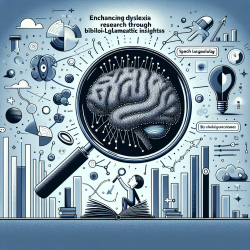Introduction
Chronic pain is a pervasive issue affecting a significant portion of the population, with profound impacts on individuals' physical, mental, and social well-being. Despite its prevalence, chronic pain is often misunderstood, underreported, and inadequately treated. As practitioners dedicated to improving outcomes for those in need, it is crucial to base our interventions on data-driven insights and validated tools.
The Chronic Pain Myth Scale: A Transformative Tool
The research article titled "The Chronic Pain Myth Scale: Development and Validation of a French-Canadian Instrument Measuring Knowledge, Beliefs, and Attitudes of People in the Community towards Chronic Pain" introduces an innovative tool designed to measure community perceptions of chronic pain. This scale, known as the Chronic Pain Myth Scale (CPMS), provides a comprehensive assessment of knowledge, beliefs, and attitudes towards chronic pain, its biopsychosocial impacts, and its treatment.
Key Findings and Implications
The CPMS was developed through a rigorous process involving pain experts and community members, ensuring its relevance and accuracy. The scale was validated among a diverse population in Quebec, demonstrating strong internal consistency and construct validity. Key findings from the study revealed significant differences in perceptions based on personal experience with chronic pain and professional background.
- Participants with chronic pain or those knowing someone with chronic pain exhibited more informed and empathetic attitudes.
- Healthcare professionals did not significantly differ in their perceptions compared to non-professionals, highlighting a need for enhanced training and awareness.
- Women and individuals with higher education levels showed more positive attitudes towards chronic pain.
Implementing the CPMS in Practice
For practitioners, the CPMS offers a valuable tool to assess and address misconceptions about chronic pain within the community. By integrating this scale into practice, professionals can:
- Identify gaps in knowledge and attitudes that may hinder effective pain management.
- Develop targeted educational programs to dispel myths and foster empathy.
- Enhance communication strategies with patients and their families, promoting a more supportive environment.
Encouraging Further Research
While the CPMS provides a robust framework for understanding community perceptions, further research is essential to expand its applicability. Practitioners are encouraged to explore the scale's use in diverse populations and settings, contributing to a broader understanding of chronic pain management.
By embracing data-driven tools like the CPMS, we can create more informed, empathetic, and effective interventions for individuals experiencing chronic pain. Together, we can transform perceptions and improve outcomes for those in need.
To read the original research paper, please follow this link: The Chronic Pain Myth Scale: Development and Validation of a French-Canadian Instrument Measuring Knowledge, Beliefs, and Attitudes of People in the Community towards Chronic Pain.










